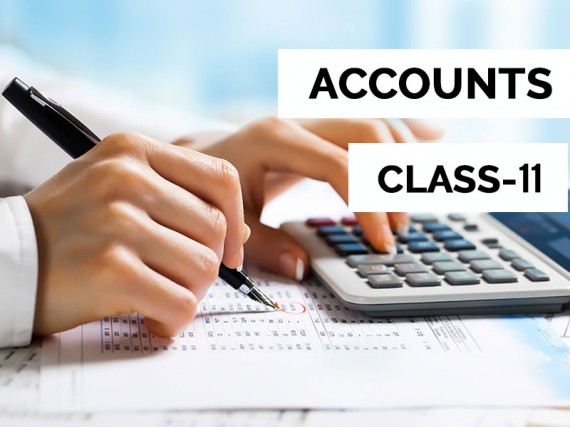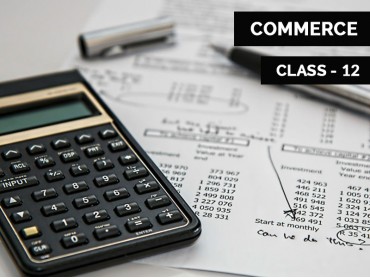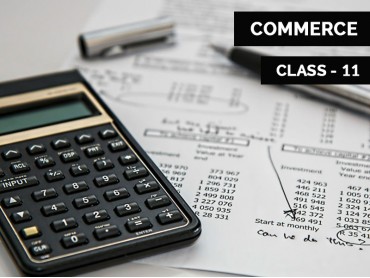
Overview
Accountancy subject in class XI helps a student in understanding the principles and practices of financial accounting; it also helps in understanding the preparation of financial statements of Trading and Non-Trading. As the syllabus introduces many new terms for students, the latter seeks help from accounts home tutors who help students in redressing all their concerns. The accounts home tuitions for class XI helps in promotion of knowledge on savings account, on cash book, passbook etc.
Session wise Curriculum:
The accounts home tutors follow the guidelines of respective boards and keep the syllabus of the NCERT and CBSE in mind while teaching the kids.The subject is being taught to students going along with the school syllabus given by different boards. Tentative session wise complete accountancy course for class XI is as following:
Unit 1: Theoretical Framework
- Introduction to Accounting
- Accounting: objectives, advantages and limitations, types of accounting information; users of accounting information and their needs
- Basic accounting terms; asset, receipts (capital and revenue), expenditure (capital, revenue and deferred)
- Theory Base of Accounting
- Fundamental accounting assumptions: Accounting principles: accounting entity, money measurement, Bases of accounting - cash basis and accrual basis
- Accounting Standards and IFRS: Concept and Objectives
Unit 2: Accounting Process
- Recording of Transactions
- Accounting equation: analysis of transactions using accounting equation
- Rules of debit and credit: for assets, liabilities, capital, revenue and expenses
- Origin of transactions
- Books of original entry: format and recording - Journal
- Cash Book: Simple Cash Book, Cash Book with Discount Column and Cash Book with Bank and Discount Columns, Petty Cash Book
- Other books
- Preparation of Bank Reconciliation Statement
- Bank reconciliation statement- Ledger - format, Trial balance: objectives and preparation
- Depreciation, Provisions and Reserves
- Accounting for Bills of Exchange
- Bills of exchange and promissory note: Accounting treatment of bill transactions
- Rectification of Errors
- Errors: types-errors of omission, commission, principles, and compensating; their effect on Trial Balance
- Detection and rectification of errors; preparation of suspense account
Unit 3: Financial Statements of Sole Proprietorship
- Financial Statements: objective and importance
- Profit and loss account: gross profit, operating profit and net profit
- Balance Sheet: need, grouping, marshalling of assets and liabilities
- Adjustments in preparation of financial statements : with respect to closing stock, outstanding expenses, prepaid expenses, accrued income, income received in advance, depreciation, bad debts, provision for doubtful debts, provision for discount on debtors, manager's commission, abnormal loss, goods taken for personal use and goods distributed as free samples
- Preparation of Trading and Profit and Loss Account and Balance Sheet of sole proprietorship
- Incomplete records: use and limitations. Ascertainment of profit/loss by statement of affairs method
Unit 4: Financial Statements of Not-for-Profit Organisations
- Not-for-profit organisations: concept
- Receipts and Payment account: features
- Income and Expenditure account: features. Preparation of Income and Expenditure account and Balance Sheet from the given Receipts and Payments account
Unit 5: Computers in Accounting
- Introduction to Computer and Accounting Information System {AIS}: Introduction to computers (Elements, Capabilities, Limitations of Computer system)
- Introduction to operating software, utility software and application software. Introduction to Accounting Information System (AIS), as a part of MIS
- Automation of Accounting Process
- Stages in automation
(a) Accounting process in a computerised environment (Comparison between manual accounting process and Computerised accounting process.)
(b) Sourcing of accounting Software (Kinds of software: readymade software; customised software and tailor-made software; Generic Considerations before sourcing accounting software)
(c) Creation of Account groups and hierarchy
(d) Generation of reports -Trial balance, Profit and Loss account and Balance Sheet
-
 Best Curated
Best Curated
Tutor for You -
 Guaranteed Refund within
Guaranteed Refund within
48 hours* -
 Chapterwise Practice
Chapterwise Practice
Questions




